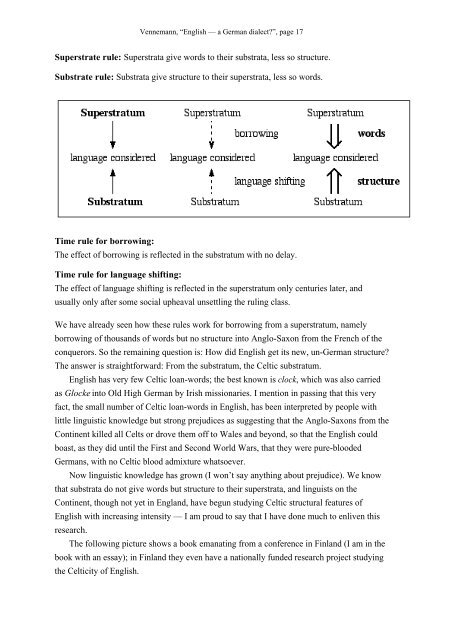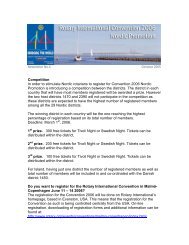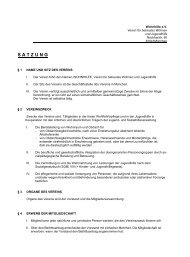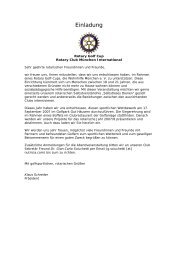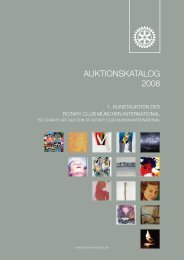English - a German dialect? - Rotary Club of Munich International
English - a German dialect? - Rotary Club of Munich International
English - a German dialect? - Rotary Club of Munich International
Create successful ePaper yourself
Turn your PDF publications into a flip-book with our unique Google optimized e-Paper software.
Vennemann, “<strong>English</strong> — a <strong>German</strong> <strong>dialect</strong>?”, page 17<br />
Superstrate rule: Superstrata give words to their substrata, less so structure.<br />
Substrate rule: Substrata give structure to their superstrata, less so words.<br />
Time rule for borrowing:<br />
The effect <strong>of</strong> borrowing is reflected in the substratum with no delay.<br />
Time rule for language shifting:<br />
The effect <strong>of</strong> language shifting is reflected in the superstratum only centuries later, and<br />
usually only after some social upheaval unsettling the ruling class.<br />
We have already seen how these rules work for borrowing from a superstratum, namely<br />
borrowing <strong>of</strong> thousands <strong>of</strong> words but no structure into Anglo-Saxon from the French <strong>of</strong> the<br />
conquerors. So the remaining question is: How did <strong>English</strong> get its new, un-<strong>German</strong> structure?<br />
The answer is straightforward: From the substratum, the Celtic substratum.<br />
<strong>English</strong> has very few Celtic loan-words; the best known is clock, which was also carried<br />
as Glocke into Old High <strong>German</strong> by Irish missionaries. I mention in passing that this very<br />
fact, the small number <strong>of</strong> Celtic loan-words in <strong>English</strong>, has been interpreted by people with<br />
little linguistic knowledge but strong prejudices as suggesting that the Anglo-Saxons from the<br />
Continent killed all Celts or drove them <strong>of</strong>f to Wales and beyond, so that the <strong>English</strong> could<br />
boast, as they did until the First and Second World Wars, that they were pure-blooded<br />
<strong>German</strong>s, with no Celtic blood admixture whatsoever.<br />
Now linguistic knowledge has grown (I won’t say anything about prejudice). We know<br />
that substrata do not give words but structure to their superstrata, and linguists on the<br />
Continent, though not yet in England, have begun studying Celtic structural features <strong>of</strong><br />
<strong>English</strong> with increasing intensity — I am proud to say that I have done much to enliven this<br />
research.<br />
The following picture shows a book emanating from a conference in Finland (I am in the<br />
book with an essay); in Finland they even have a nationally funded research project studying<br />
the Celticity <strong>of</strong> <strong>English</strong>.


